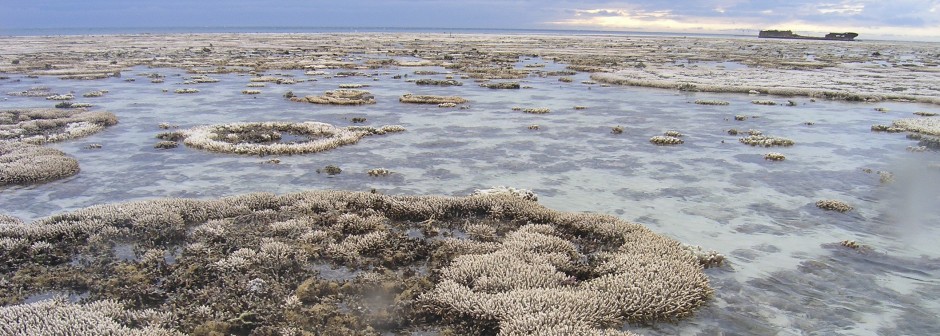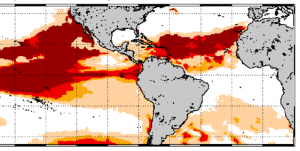For me, it’s always been hard to wrap my mind around the fact that corals are actually living organisms. They eat, they fight, and they reproduce. Yet, I still tend to think of them as underwater rocks. However, the real shocker is that they are all currently in danger.

Map of the Galapagos Islands (http://www.traveldiscounters.ca/Travel-Vacations/DestinationImages/Galapagos-Islands-Map.jpg)
The Galapagos Islands, located in the Eastern Pacific Ocean, are an archipelago of volcanic islands surrounded by a vastly diverse ecosystem of large populations of marine life and coral communities. These coral reefs are being threatened with extinction. Pressures include changes in temperature, acidification, sedimentation, pollution, and overfishing. (1)
In 1982-1983, El Niño caused the temperatures in the Galapagos to rise 3-4 degrees Celsius above the usual maximum sea temperatures. (3) An increase in temperature leads to stress in the corals, which in turn causes them to expel the symbiotic algae living in their tissues and become white in color. Without the algae, the coral loses its major source of food and is more susceptible to disease. This process is referred to as coral bleaching. (2) Currently, the area around the Galapagos Islands is about 29 degrees Celsius, a degree and a half warmer than the critical temperature for bleaching for corals at that site. (2) If the stress is only temporary, corals are expected to recover. However, none of the Galapagos’ southern reefs show any signs of recovery. (3)
In addition to changes in temperature, another big factor in coral bleaching near the Galapagos Islands is seawater acidity. Upwelling, the rising of deep, cold water towards the surface, along the coasts of the Galapagos has lead to high carbon dioxide concentrations. As a result, the seawater has a lower pH, making it more acidic. High levels of carbon dioxide negatively affect corals as well as other organisms. These conditions are expected to reach the rest of the tropics by the 2050’s. (3) Derek Manzello, a coral ecologist and researcher for NOAA’s National Coral Reef Monitor Program, conducted field studies and determined that at present day acidification levels corals can recover, but their recovery is dependent on water quality conditions. (3)
Only one surviving reef off the coast of Darwin Island in the northern Galápagos Islands. Photo Credit: Joshua Feingold (3)
Right now, coral bleaching is one of the largest threats to coral reefs all around the world. The current conditions have been declared the third global coral bleaching event. (4) Estimates have proposed that 20% of the world’s coral reefs are already dead and an additional 24% are endangered. (1) This event has been projected to last well into 2016, and very likely to continue spreading worldwide. (4) If nothing is done to help the coral reefs, marine organisms everywhere will continue to suffer.
Sources:
- Kazan, Casey. “The Galapagos Islands – Destruction of the World’s Coral Reefs.” The Daily Galaxy. N.p., 16 Dec. 2009. Web. <http://www.dailygalaxy.com/my_weblog/2009/12/galapagos-islands-a-harbinger-for-the-destruction-of-the-worlds-coral-reefs.html>.
- Viets, Patricia. “EL NINO CAUSING CORAL BLEACHING IN GALAPAGOS, NOAA ANNOUNCES.” NOAA, 20 Jan. 1998. Web. <http://www.publicaffairs.noaa.gov/pr98/jan98/noaa98-004.html>.
- “The Galápagos Islands: A Glimpse into the Future of Our Oceans.” NOAA AOML, 2006. Web. <http://www.aoml.noaa.gov/keynotes/keynotes_0115_galapagos.html>.
- “NOAA Declares Third Ever Global Coral Bleaching Event.” NOAA, 8 Oct. 2015. Web. <http://www.noaanews.noaa.gov/stories2015/100815-noaa-declares-third-ever-global-coral-bleaching-event.html>.



